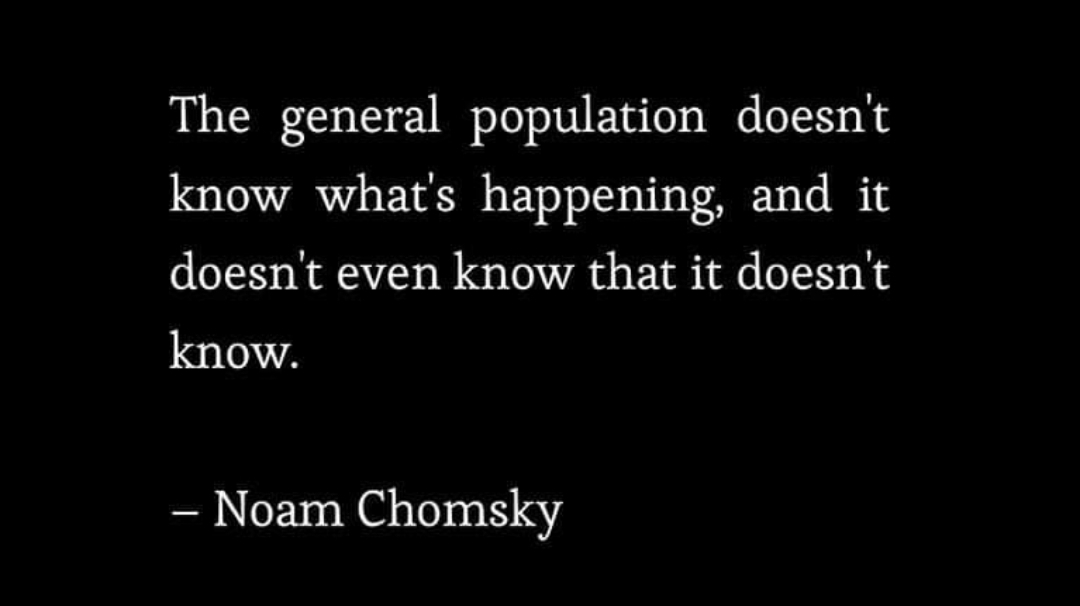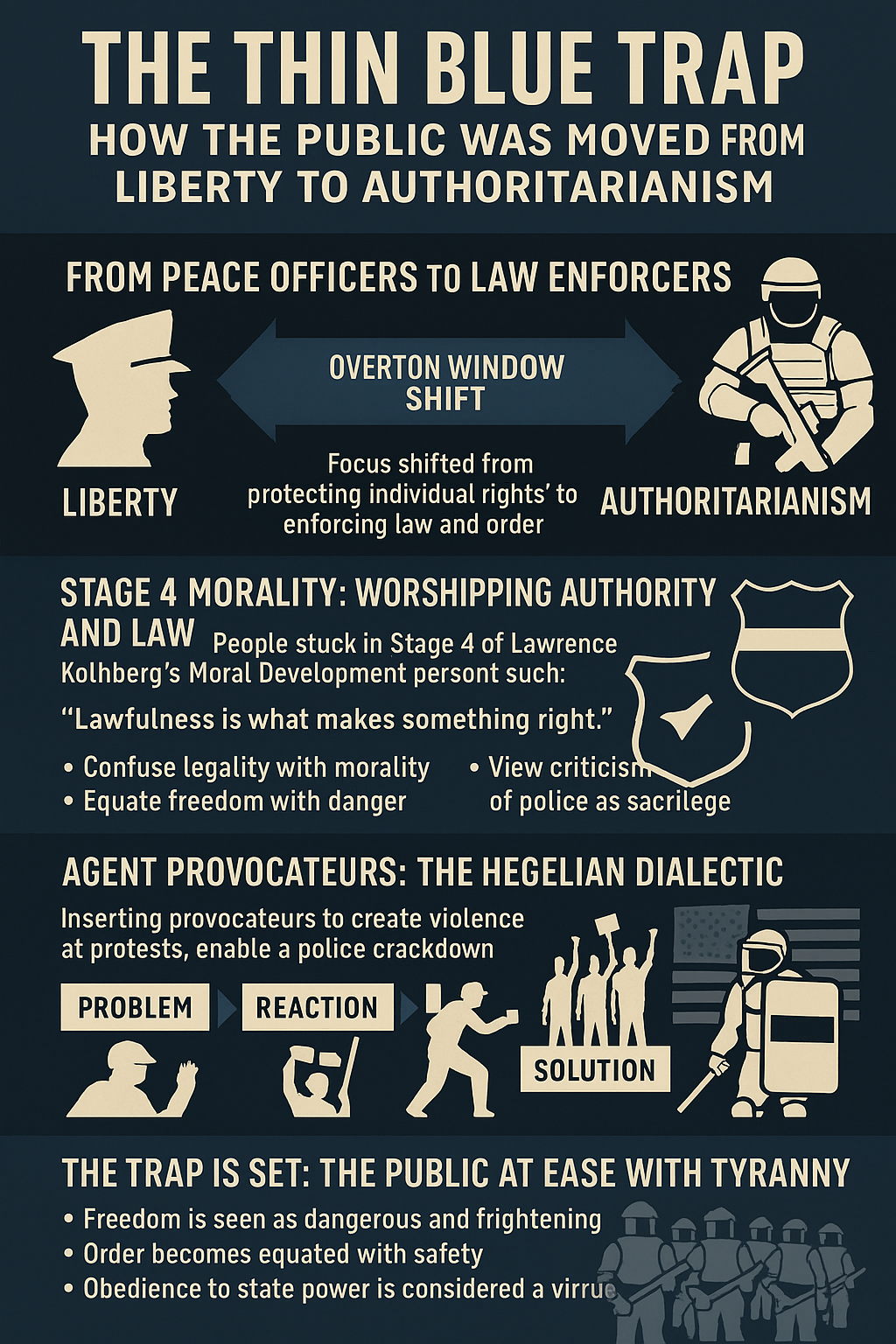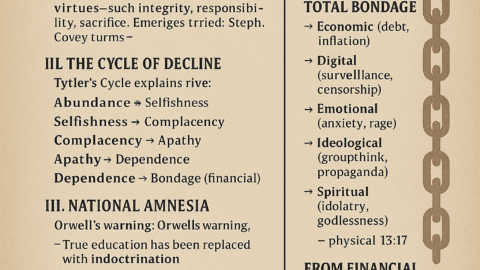In light of what transpired on July 13 regarding Donald Trump in Butler, Pennsylvania.

The situation’s results have an eery feel and psychological effect, leading us to the same outcome of a psyops and false flag as into the arms of the oligarchs and centralization.
The impact of constant deception highlight the dangers it poses to truth, moral judgment, and the capacity for critical thinking.
In a society where lies prevail, the distinction between truth and falsehood, right and wrong, becomes blurred, leading to manipulation and control by those in power.
Addressing these challenges requires a commitment to truth, transparency, accountability, and the promotion of critical thinking and media literacy.
By doing so, society can resist the corrosive effects of constant lying and safeguard the principles of Constitutional Republic and individual freedom.
Americans must be mindful and vigilant as we navigate through all crises, including this latest one concerning Trump.
“You never want a serious crisis to go to waste. And what I mean by that is an opportunity to do things that you think you could not do before.” — Rahm Emanuel
“Never let a good crisis go to waste” suggests that crises, while disruptive and challenging, also present unique opportunities for significant change. Depending on the direction of change, such as centralization or separation of political power, change could be good or bad. But in today’s environment, the change will be bad.
Interpretation and Meaning
Opportunity in Adversity:
- Catalyst for Change: Crises force people and organizations to confront problems and make changes that might be difficult or impossible during normal times.
- Innovation and Adaptation: The pressure of a crisis can spur innovation and prompt individuals and institutions to adapt rapidly to new circumstances.
Political and Social Context:
- Policy Reform: Governments often use crises as opportunities to pass significant reforms or implement policies that might face resistance in more stable times.
- Public Support: During crises, public support for decisive action tends to be higher, because of fear, allowing leaders to push through substantial changes with less opposition.
Economic and Business Context:
- Reorganization: Companies may use crises to restructure, streamline operations, or pivot to new business models.
- Investment: Economic downturns or disruptions can present unique investment opportunities for those who are prepared to act.
Historical Examples
Great Depression and New Deal:
- Economic Reform: The economic crisis of the Great Depression led to the New Deal, a series of programs and reforms in the United States that reshaped the economy and government’s role in it by removing checks and balances and centralizing power in the national government and oligarchs hands.
Post-World War II Reconstruction:
- Marshall Plan: The devastation of World War II led to the Marshall Plan, which provided aid to rebuild Europe, fostering economic recovery and political stability.
2008 Financial Crisis:
- Regulatory Changes: The financial crisis prompted significant regulatory changes, such as the Dodd-Frank Act in the United States, aimed at preventing future financial collapses.
Ethical Considerations
Exploitation vs. Genuine Reform:
- Exploitation: There’s a fine line between using a crisis for genuine improvement and exploiting it for personal or political gain.
- Transparency and Accountability: Actions taken during a crisis should be transparent and accountable to ensure they serve the public good rather than narrow interests.
Long-Term Impact:
- Sustainable Solutions: Changes implemented during crises should aim for long-term benefits rather than quick fixes that might have negative repercussions later.
- Inclusive Decision-Making: Involving diverse critical thinking in decision-making can help ensure that crisis responses are equitable and address the needs of all affected parties.
Practical Applications
Leadership and Management:
- Proactive Planning: Leaders should have contingency plans in place to respond effectively to crises and leverage them for positive change.
- Communication: Clear and consistent communication is crucial during crises to maintain trust and guide collective efforts toward constructive outcomes.
Personal Resilience:
- Adaptability: Individuals can use crises as opportunities to develop new skills, adapt to changing circumstances, and find new paths for personal and professional growth.
- Mindset: Viewing crises as opportunities rather than threats can foster resilience and proactive problem-solving.
The phrase “Never let a good crisis go to waste” underscores the potential for crises to serve as powerful catalysts for change. Crises can prompt reforms, innovation, and adaptation in politics, business, or personal life. However, it’s essential to approach these opportunities ethically and focus on sustainable, long-term benefits for the republic and separation of powers. By doing so, crises can lead to significant improvements and progress, turning adversity into an avenue for growth and positive transformation.
“Beware that, when fighting monsters, you yourself do not become a monster… for when you gaze long into the abyss. The abyss gazes also into you.” — Friedrich W. Nietzsche
Friedrich Nietzsche’s thought is a profound caution about the dangers of becoming what we oppose. It underscores the psychological and moral risks of combating evil or facing profound challenges.
Interpretation of Nietzsche’s Quote:
Moral Vigilance:
- Ethical Boundaries: When fighting against wrongdoing or evil, it’s crucial to maintain one’s own ethical standards. The risk is that, in opposing a monster, one might adopt similar tactics or attitudes, thus becoming monstrous oneself.
- Ends vs. Means: The quote highlights the importance of not compromising moral integrity for the sake of achieving a goal, no matter how noble.
Psychological Reflection:
- Inner Transformation: Engaging deeply with darkness, whether external or within oneself, can lead to internal changes. Gazing into the abyss (facing profound challenges or evil) can alter one’s character or perspective, often in ways that are not immediately evident.
- Self-Awareness: It calls for self-awareness and reflection to ensure that the fight against hostile forces doesn’t corrupt or change individuals in detrimental ways.
Practical Applications:
Activism and Justice:
- Righteous Anger: Activists and those fighting for justice must be cautious not to let righteous anger turn into hatred or intolerance, mirroring the very injustice they oppose.
- Compassion and Humanity: Maintaining compassion and humanity while striving for moral and constitutional change ensures that the fight for justice does not lead to further harm or division.
Personal Conflicts:
- Resentment and Revenge: In personal conflicts, focusing too much on the wrongs done to us can lead to resentment and a desire for revenge, which can be destructive to oneself and others.
- Forgiveness and Healing: Emphasizing forgiveness and healing can prevent the negative transformation from dwelling on hurt and anger.
Leadership and Power:
- Corruption of Power: Leaders who start with good intentions can become corrupt if they lose sight of their original values in pursuing power. Constant self-checks and accountability are necessary to prevent this.
- Servant Leadership: Emphasizing servant leadership, where the focus remains on serving others rather than gaining power, can mitigate the risks highlighted by Nietzsche.
Mental Health:
- Facing Trauma: In therapy and personal development, facing one’s traumas and fears (the abyss) is necessary for healing. However, it must be done carefully and with support to prevent being overwhelmed by the darkness.
- Building Resilience: Developing resilience and coping mechanisms can help individuals engage with their inner challenges without being consumed by them.
Nietzsche serves as a timeless warning about the perils of fighting against evil or facing profound challenges. It emphasizes the need for moral vigilance, self-awareness, and ethical integrity. Whether in activism, personal conflicts, leadership, or mental health, the principle of not becoming what we oppose is crucial. We can navigate these battles without losing our humanity or integrity by maintaining our values, practicing compassion, and ensuring self-reflection.
I worry that the outcome will not be friendly to America’s freedom, liberty, and Constitutional Republic, as it will result in additional government centralization and overreach. I have observed the mindless masses at work, but I have also experienced with gratitude the informed minority’s rise to challenges. I hope we are equal to the task at hand.
There are many theories, one of which is that the incident was a false flag. Whether this was a false flag or not, I fear the incident will achieve the same results as a perceived or actual false flag or psyop to human nature.
The worst thing we can do is be sucked into the claimer; we need to think of ourselves as investigators solving a crime. As we do, I would suggest using this checklist as a guide to understanding the current situation and future challenges in the political and personal arena.
False flag operations are designed to deceive and manipulate, often leading to widespread misinformation, internal conflict, division, and a consolidation of power by those who orchestrate them.
Key Outcomes of False Flag Operations:
Untruths and Misinformation:
- Deception: The primary goal of a false flag operation is to mislead the public or specific groups about who is responsible for an event. This spreads false information and obscures the truth.
- Propaganda: The false narrative can be used as propaganda to achieve political or military objectives, influencing public opinion and policy.
Infighting:
- Internal Conflicts: False flag operations can provoke internal conflicts by attributing blame to a particular group or entity. Different factions within a society may turn against each other, believing the false narrative.
- Distraction: Infighting distracts people from addressing the real issues or identifying the actual perpetrators, weakening any unified response against the trustworthy source of the problem.
Division:
- Polarization: False flag operations often deepen existing divides within a society. The spread of false information can polarize communities, increasing hostility and mistrust between groups.
- Fragmentation: Societal cohesion can be severely undermined, resulting in more easily controlled and manipulated fragmented communities.
Rule and Consolidation of Power:
- Manipulation of Power: Those who orchestrate false flag operations can use the resulting chaos to justify implementing draconian measures, increasing surveillance, or cracking down on dissent.
- Authoritarianism: By creating a perceived threat, leaders can rally support for authoritarian policies to ensure security and stability and consolidate their power.
Implications:
Erosion of Trust:
- In Institutions: Trust in governmental and other institutions can erode as people realize they have been deceived. This can lead to a more cynical and skeptical public.
- In Media: The spread of misinformation can also damage trust in media outlets, making it harder for people to discern credible sources of information.
Destabilization:
- Political Instability: False flag operations can lead to significant political instability, as the ensuing division and infighting weaken democratic processes and governance.
- Social Unrest: Societal unrest can be exacerbated as different groups clash over false narratives, leading to protests, violence, and civil disorder.
Modern Relevance:
Digital Age and Social Media:
- Rapid Spread of Misinformation: In the digital age, false information can spread rapidly via social media, reaching a wide audience quickly and making it harder to counteract.
- Echo Chambers: Social media algorithms can create echo chambers where false narratives are reinforced within like-minded communities, further entrenching division.
Geopolitical Tensions:
- International Relations: False flag operations can strain international relations, as countries may react to events based on false information, leading to conflicts or diplomatic rifts.
- Global Propaganda: State and non-state actors can use false flag operations in broader propaganda campaigns to influence international public opinion and policy.
False flag operations result in widespread untruths, infighting, division, and the consolidation of power by those who orchestrate them. They erode trust, destabilize societies, and manipulate public perception to achieve specific goals. Combating the effects of false flag operations requires promoting media literacy, fostering critical thinking, ensuring transparency, and maintaining open communication. By doing so, societies can better resist manipulation and uphold democratic republic principles and social cohesion.
In times of division and crisis, the clamor for strong, centralized leadership can lead to the erosion of liberties and democratic-republican norms. To safeguard freedom, it is essential to promote dialogue and understanding, strengthen democratic institutions, enhance civic education and engagement, and support independent media and critical thinking. By addressing the root causes of division and empowering citizens, societies can navigate turbulent times without sacrificing their fundamental liberties.
Fear can erode liberty as individuals and societies demand immediate action in response to perceived threats. To safeguard freedoms, it is essential to maintain critical awareness, uphold the rule of law and institutional safeguards, encourage public vigilance and activism, and ensure a balanced approach to security and liberty. By doing so, societies can protect their fundamental rights while addressing legitimate security concerns.






